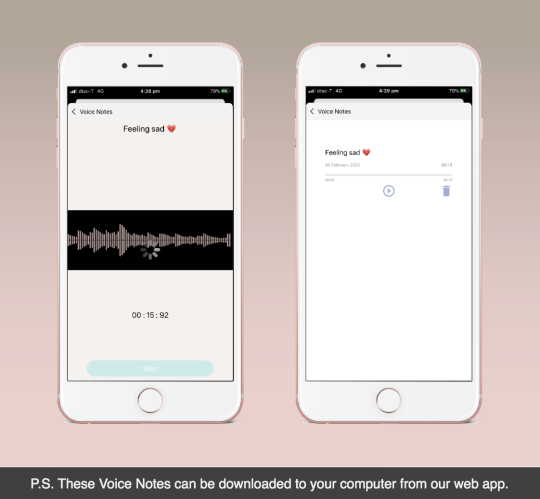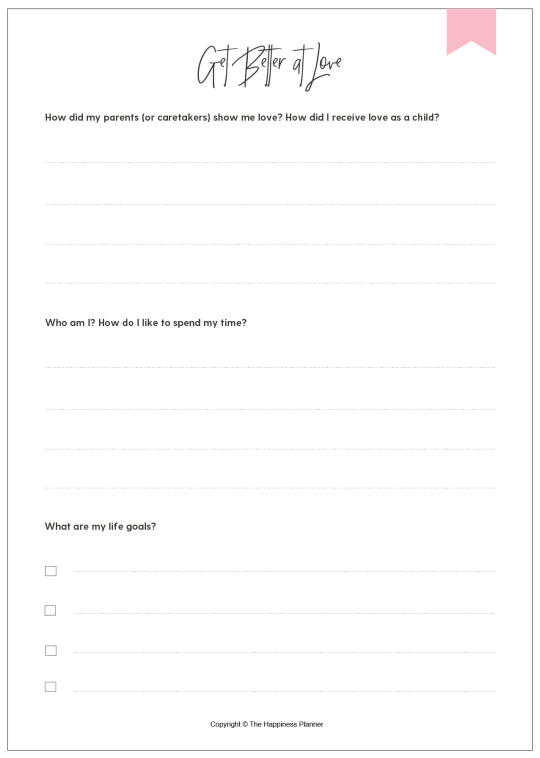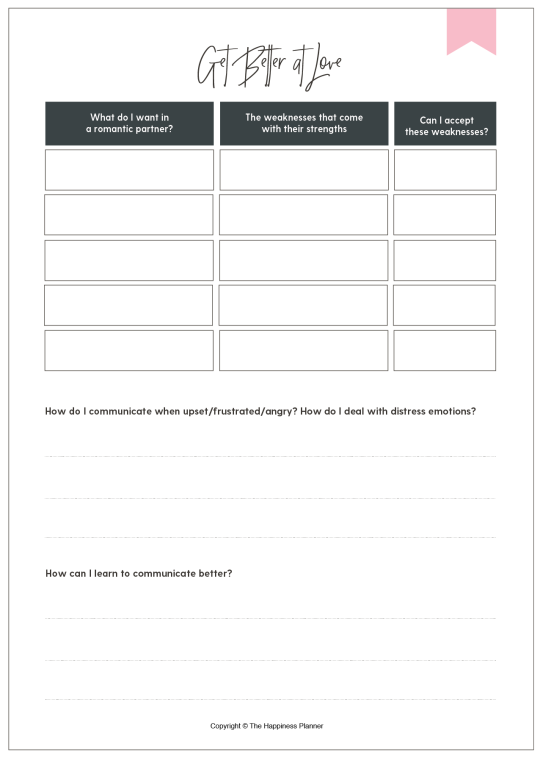How To Be Better At Love?

Whether you’re in a relationship, single, or in a complicated situation, I think we can all agree that working on our relationship is really working on ourselves.
There’s no other place as intimately challenging as being in a relationship. A relationship is where can heal all of our intimacy, commitment, and abandonment wounds and fears - if we allow ourselves to confront our deepest fears and greatest vulnerabilities. Many of us choose to run. But there comes a point when we’re mature enough to realize that running away doesn’t make anything better. Running away might seem like the right thing to do in the moment, but it doesn’t make us feel fulfilled. We still feel hollow because we run away from our deepest need - our need to be loved.
But we all have our hearts to protect. Is this person going to let me in if I let them in? How do I know they are not going to leave if I let them in and know the true me? Will they love me for who I really am? Will they accept my flaws?
Past stories keep repeating in our head. Fears and insecurities arise, not just from previous relationships but also from our upbringing - how we received love from parents.
Here are what I believe we should all do to be better at love.
1. Understand yourself. How did you receive love as a child?
The fear we fear happening to us in our romantic relationship is often the result of how we were treated and loved as children. This is subconscious. Most of us don’t realize why we keep repeating this pattern. We repeat the pattern because it’s familiar. But just because something is familiar, it doesn’t mean that it’s good for us.
An example:
- If your mother was tough and strict on you - you had to get good grades at school and succeed in career in order for her to show love, affection, and pride in having you as her child - you naturally would subconsciously be drawn to people who appreciate and admire you for your success. And if you feel like you’re not doing well, you may withdraw from them because when you were little, your mother did not show you strong affection unless you did well at school. You had to earn her love through your success. You are repeating the same pattern in your romantic relationships.
Another example:
- If you had a father who was physically and emotionally absent because he was busy with work, you may grow up feeling that that behavior from a man is acceptable. So you may subconsciously be drawn to men who are physically and emotionally absent, but provide financial stability for you like your father did. You might repeat this pattern until you start doing some inner work and realize that this pattern of dating has not made you fulfilled and that you need to be with a man who can be physically and emotionally present with you.
No relationship is perfect since no one is perfect. Neither are our parents. But as we get older, we can acknowledge what we want for our children. And if we want our children to grow up in a healthy, loving home, we must, first and foremost, heal our wounds.
2. Understand yourself. Who are you?
Understanding yourself is the first step to having a successful relationship. Understanding who you are helps you weed out people who would not be compatible with you.
While differences create opportunities for learning, vast differences can create annoyance, conflicts, misunderstandings, miscommunications, and disagreements. All of these could lead to unhappiness. When the honeymoon phase ends, who wants to compromise? By understanding yourself better, you avoid wasting time and energy with people who are not a great fit.
- Do you understand your own lifestyle? How do you like to spend your time? What are your habits?
- What are your likes and dislikes? What are your pet peeves and red flags?
- How do you view the world? Are you liberal or conservative? Are you religious?
- What are your core values? Do you share the same moral standard?
3. Understand yourself. What are your goals?
One top reason I see people with compatible personality traits and lifestyles break up after a few years together is having different life goals.
Do you know what you want out of life? Sometimes our goals change as we get older. That’s why it is wise to get married when you know for sure who you really are and what you want out of life. But even then, your goals may still change and your partner’s goals might not align with yours anymore.
What are your life goals? Do you want to have children? Do you want to live in a big city or in a suburb? Where do you want to live? Do you want the same things in life?
“Loving is not just looking at each other, it’s looking in the same direction.”
– Antoine de Saint-Exupéry
4. Understand yourself. What do you want in a romantic partner?
- Do you know what you want in a romantic partner?
- What qualities do you want in a partner?
- What traits do you admire?
Here’s the catch:
Sometimes the traits we admire in others are the traits we have & love about ourselves, or, the traits we want to have but don’t have as much of yet.
Once we shift the focus from finding these traits in a partner to growing this trait within ourselves, our need to find it in a partner will diminish. It diminishes because we have fulfilled it within ourselves. There is no need to find it elsewhere.
If you know yourself well enough, you’d know what traits you lack. These traits you lack can exist in a partner who can come in to complement you. However, these exact same complementary traits can also annoy you in some way.
Here are some examples:
- If you’re a very organized and systematic person, you might find that a partner who is flexible and spontaneous helps you loosen up and find more joy in life. At the same time, their flexibility and spontaneity might also annoy you from time to time.
- If you’re quite wishy-washy and live in the moment, you might find stability from being with someone plans ahead and is more grounded. At the same time, conflicts might arise as you might be annoyed with their planning-ahead mantra. They might be annoyed with your inability to plan and stick to plans.
- If you’re logical, you might like how an emotional partner helps you get in touch with your emotional self. However, sometimes you might find them too sensitive and take things too personally when you’re just being blunt or direct. This could create misunderstandings and require you both to work out the differences in communication.
- If you want to date someone who is strong and dominant, you have to realize that they would always want to take the lead and would not be happy if you take the lead in relationships which include earning more or making more important decisions.
- If you want a more passive, sensitive partner who lets you take the lead in relationships, you have to realize that they would not be that dominant man who argues with someone for you or treats you like a little princess.
- A person who is very empathetic and sensitive would naturally always put other people’s needs before themselves. While this is a good trait, it could be negative because they don’t prioritize their own needs.
Every strength comes with its weakness. That same weakness can be seen as a strength. It depends on how you look at it. Nonetheless, both cannot exist in the same person with the same level of intensity. One will always be stronger than the other. So you have to decide what you want, what makes you happiest, and what weakness you can accept.

5. Communicate Better
One of the downfalls I see in many relationships comes down to communication.
A) Miscommunication
I believe that as we get older, we all must get better at communicating. I know I am now a lot more expressive verbally than I was when I was younger. People are not mind readers. The only way to communicate how we feel and what we want is by verbalizing it. But there’s an art to it - which leads to the next point.
B) Ways of communication
We should express how we feel and how a situation or someone’s action makes us feel. However, no one likes to feel criticized or blamed. From my research, study, and observation of successful couples, people who are able to sustain happy long-term relationships know how to communicate. They do not yell or scold at their partner when angry. They do not rage. They do not swear. They do not stonewall.
One common scenario is this:
You tell your partner how a situation or their action makes you feel. But they get defensive! When someone is defensive, they stop listening to you and hear what you have to say. So you don’t feel listened to. Your needs don’t get met. This might become an unhealthy pattern in a relationship.
People who win in relationships know how to communicate their needs in a way that does not make their partners feel criticized or blamed. This is an art we all need to master. Several dating books provide great advice on this.
Also, there are couples who both like to yell and scold at one another when angry. And it works out for them. And if you look at how they’re brought up, you probably see that they both grew up in similar kinds of households where parents communicated that way. So they are used to and subconsciously adopted that way of communication.
The problem arises when two people have different ways of communicating.
One person might want to take quiet space and withdraw; the other person might want to talk it out right away.
One person might grow up with parents who communicate calmly and have learned to communicate calmly. The other person might grow up with a parent who is verbally abusive. Therefore, they either adopt that same way of communication (as a way to respond to that said parent), or, they might become the opposite which is shy and withdraw.
Understanding your partner’s preferred way of communication help eliminate misunderstandings. When you understand how your partner copes with distress emotions, you can give them what they need. If your partner needs space, you can learn to give space. If your partner needs more communication after an argument, you can learn to be more verbal and not withdraw.
Changing how we like to communicate and dealing with our distress emotions is not easy. But a relationship can only be successful if both partners learn each other’s way of communication and adapt. It will get easier over time.
Tip:
- If you find it hard to give your partner space as you are the type who needs to “talk it out” after an argument but don’t want to overwhelm your partner who needs some time alone to process things, create “Voice Notes” on the Happiness Planner app. Talk it out as much as you can on there. When your partner is ready, you can listen back to your voice notes, so that you know what exactly you felt like saying in the heat of the moment. Oftentimes, you will find that once you calm down, you no longer want to say what you thought you wanted to say when you’re upset/angry/frustrated. This Voice Notes feature can save you from having regrets over the things you say. So many relationships fall apart because of the mean things people say when they’re angry.

6. Have more empathy & kindness
This one doesn’t need much further explanation. A relationship can only last if both people care about one another and are kind and generous with one another.
When people are not empathetic and are not kind, it is often a shield. They created this shield since they’re little to protect themselves from the cruel world, from the narcissistic parents, or from the people who abandoned and hurt them over and over. Unfortunately, sometimes the person doesn’t want to break that shied. And there’s really nothing we can do if the person is not ready and is not willing to work through their intimacy issues.
__
May you all find the love you seek. And if you still struggle with feeling worthy of love, you must first focus on your own self-love and self-acceptance. One day, you will find someone who accepts your flaws and quirks just the way you do.







Comments